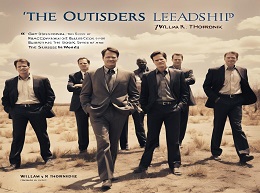Lean Impact: How to Innovate for Radically Greater Social Good

Harnessing Lean Principles for Social Good
"Lean Impact" by Ann Mei Chang offers a groundbreaking approach to driving social change through the application of lean principles. This review delves into the key concepts and strategies outlined in the book, providing readers with actionable insights and inspiring examples of organizations innovating for radically greater social good.
Understanding Lean Impact: A Paradigm Shift in Social Innovation
Subheadings like "Redefining Social Impact" and "The Lean Approach to Social Change" explore how "Lean Impact" challenges traditional approaches to social innovation. Examples of organizations embracing lean principles, such as BRAC and Crisis Text Line, illustrate the transformative potential of adopting a lean mindset to drive greater impact.
Problem-Solving with Empathy: Design Thinking for Social Innovation
The book emphasizes the importance of empathy and human-centered design in addressing social challenges. Subheadings like "Putting People First" and "Designing for Impact" delve into how organizations leverage design thinking to develop innovative solutions that meet the needs of their beneficiaries. Examples of design-led initiatives, such as IDEO.org's HCD Toolkit and the Acumen Fund's Lean Data approach, showcase the power of empathy-driven problem-solving in driving social change.
Testing Assumptions: Validating Solutions Through Experimentation
"Lean Impact" advocates for a rigorous process of hypothesis testing and experimentation to validate solutions and iterate toward greater impact. Subheadings like "The Power of Experimentation" and "Learning from Failure" explore how organizations use lean experimentation to refine their interventions and optimize their outcomes. Examples of organizations conducting lean experiments, such as Charity: Water and One Acre Fund, demonstrate the value of data-driven decision-making in driving social innovation.
Measuring What Matters: Metrics for Social Impact
The book highlights the importance of defining and measuring meaningful metrics to assess social impact effectively. Subheadings like "Beyond Outputs: Measuring Outcomes" and "Tracking Impact in Real Time" delve into how organizations develop impact metrics that align with their mission and goals. Examples of organizations using innovative measurement techniques, such as GiveDirectly's use of randomized controlled trials and Kiva's Social Performance Metrics, illustrate the importance of data-driven evaluation in driving continuous improvement and accountability.
Scaling for Sustainable Impact: Strategies for Growth and Expansion
"Lean Impact" offers insights into scaling social innovations for broader and more sustainable impact. Subheadings like "Scaling with Speed" and "Replication vs. Adaptation" explore the challenges and opportunities of scaling social interventions. Examples of organizations scaling effectively, such as Teach for All and Last Mile Health, showcase different approaches to scaling and the importance of adaptability and collaboration in driving systemic change.
Leveraging Technology: Tools for Social Innovation
The book discusses the transformative potential of technology in driving social innovation and impact at scale. Subheadings like "Tech for Good" and "Innovation in the Digital Age" delve into how organizations leverage technology to amplify their impact and reach new audiences. Examples of tech-driven initiatives, such as Code for America and Medic Mobile, highlight the role of technology in democratizing access to essential services and empowering communities to address social challenges.
Collaboration and Collective Impact: Building Ecosystems for Change
"Lean Impact" emphasizes the importance of collaboration and partnerships in driving collective impact. Subheadings like "The Power of Networks" and "Catalyzing Ecosystems for Change" explore how organizations collaborate across sectors and disciplines to tackle complex social problems. Examples of collaborative initiatives, such as the Skoll Foundation's Social Entrepreneurs Alliance and the Aspen Institute's Collective Impact Forum, demonstrate the power of collective action in driving systemic change and achieving greater social impact.
Embracing Lean Principles for Social Innovation
"Lean Impact" offers a compelling vision for driving greater social impact through the application of lean principles. Through inspiring examples and actionable insights, the book empowers organizations and changemakers to innovate more effectively and achieve meaningful change in the world. Whether you're a social entrepreneur, nonprofit leader, or philanthropist, "Lean Impact" provides invaluable guidance for harnessing the power of lean thinking to create a better future for all.













